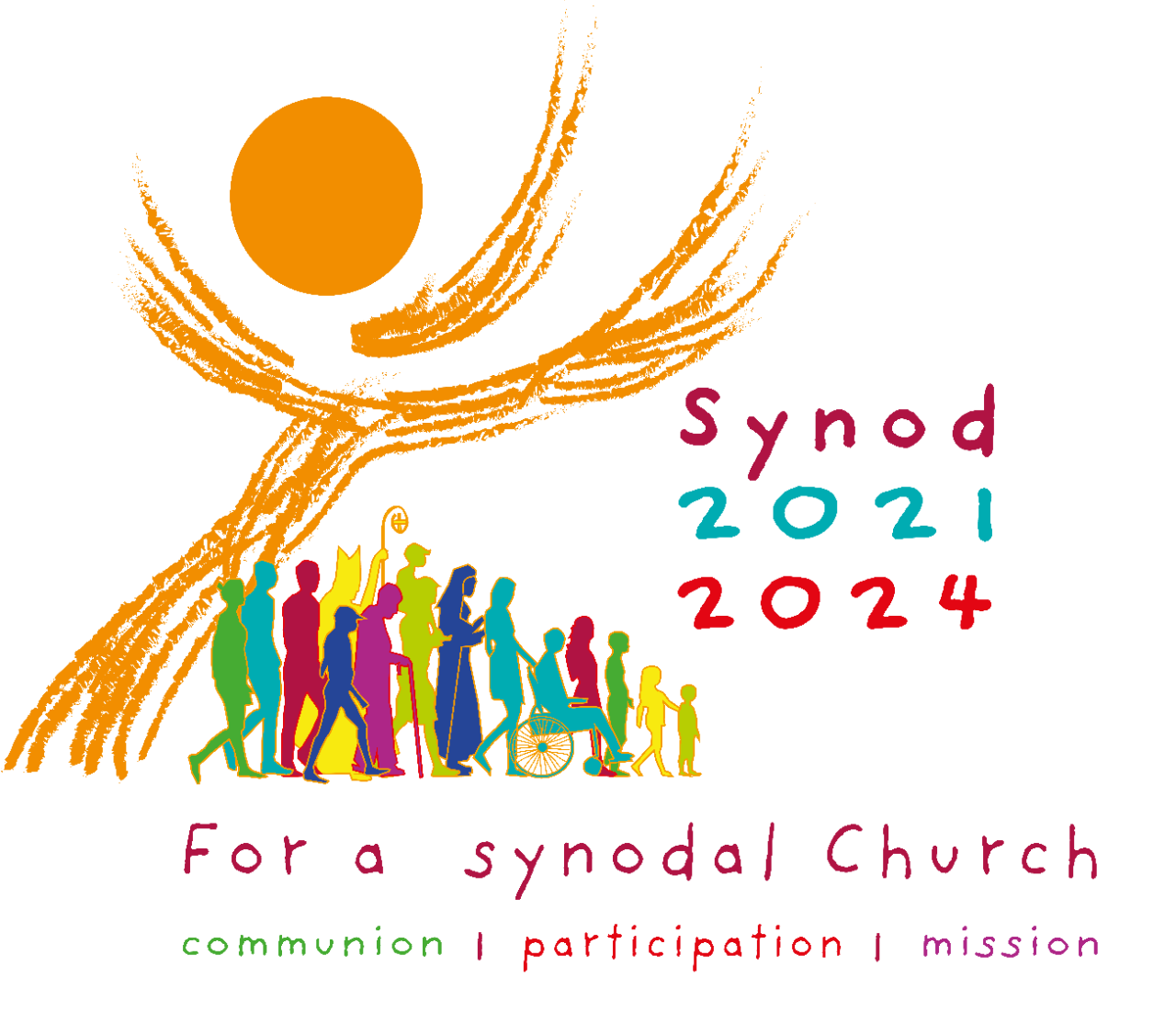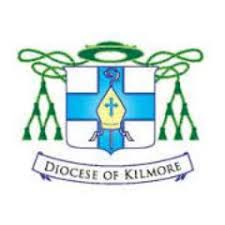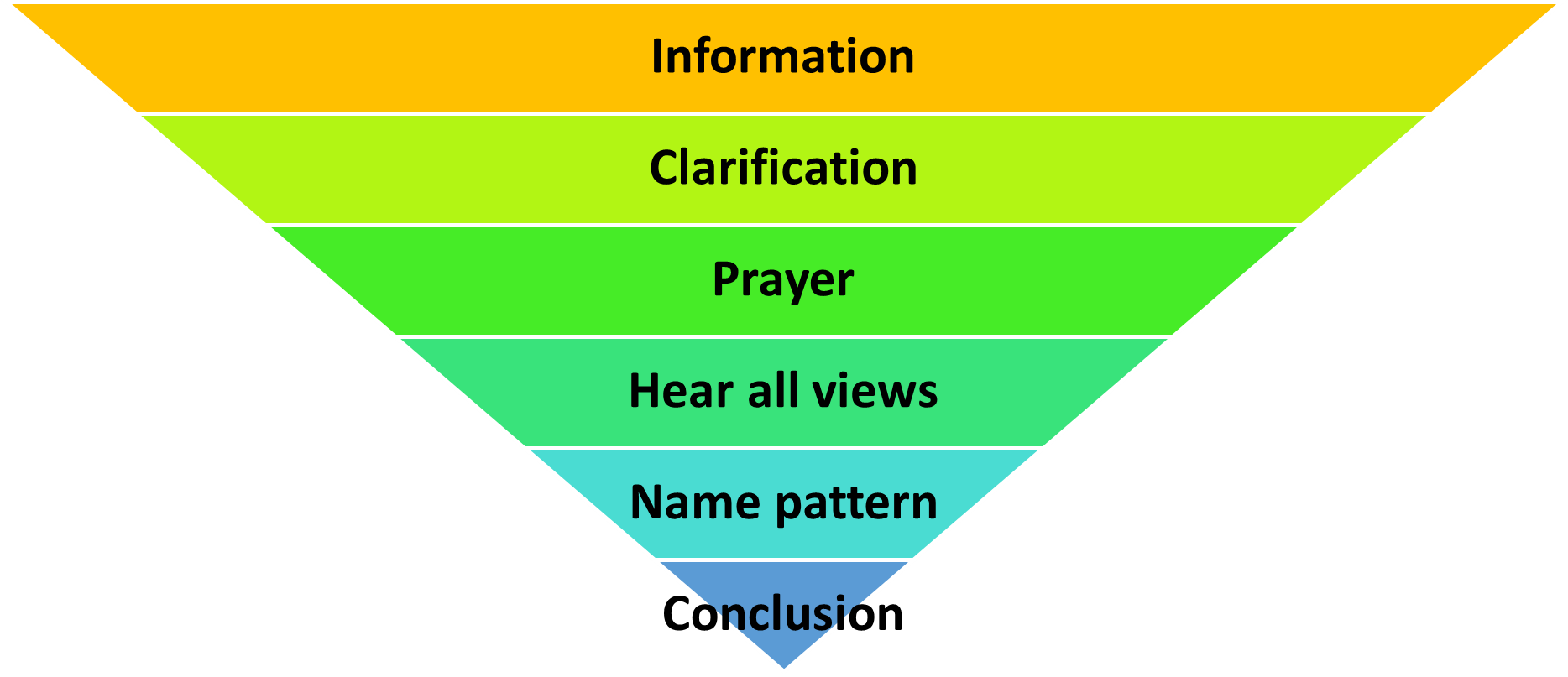Diocesan Response to Universal Synod Consultation

Following a request from the Universal Synod in Rome, each diocese was tasked to conduct a consultation based on this question: How can we imagine the life of the Church in Ireland where people are co-responsible for the Church’s mission in different ways?
The responses from the 26 dioceses in Ireland will be reviewed and synthesized into one overall draft document. This document will be presented at regional meetings in April for feedback and the final version will be sent to Rome.
The Diocese of Kilmore has submitted the following report, which is a culmination of the listening exercises with Parish Pastoral Councils and focus groups (2021-2022), parish meetings (Autumn 2023) and consultations with clergy, the Diocesan Synodality Team, the Diocesan Pastoral Council and the Diocesan Pastoral Team:

How do we imagine the church of the future? The people and clergy of Kilmore diocese.
This report is in four sections.
- The first is a report on a consultation with a range of groups (church and non-church) across the diocese that concluded in 2022 with a diocesan assembly to assess and ratify the results. The focus of this process was on imagining a church for the future.
- The second is a report on a consultation, which occurred at the end of 2023 and involved public meetings in all parishes of the diocese with a view to identifying priority action points towards the future.
- The third is a report on a consultation with diocesan clergy in early 2024.
- The fourth offers some reflections on the future from Bishop of Kilmore Martin Hayes
Section 1. The broad thrust for our church going forward.
1.1 A church confident in the message of Jesus. The Synod preparatory documents from Rome depict the mission scene as comprised of three players – Jesus, the crowd, and the apostles. While Jesus’ mission to the apostles was broadly the forming of disciples, his mission to the crowd was sharing the good news. The feedback from the listening suggests that the message of Jesus is still experienced as good news. One of the questions in the consultation was on whether it would make any difference to people if there was no faith in the world. There was a very strong positive answer to that question. Despite all the cultural changes in both rural and urban Ireland, and despite the great reduction in the status of the church, the experience of the Christian faith for many people continues to be a positive one. While we might have expected this feedback from people involved in church groups, we also got that strongly from a wide range of social groups who have no formal connection with church. The Christian faith was described as ‘an anchor’ for people when facing difficulties. It gives a sense of meaning and purpose to life. The listening did, of course, also pick up strong signs of a post-faith culture as well.
1.2 A church that is close to the life concerns of people. The word connection came across strongly when people were reflecting on church. There is a desire for a church that speaks the language of the people and reflects their lives in its liturgies. There is a strong sense that today’s apostles are not in touch with the reality of life for today’s ‘crowd’ and that an all-male, celibate clergy is not fit for purpose. There was also a very strong call throughout all the groups for the church to address real-world issues like poverty, homelessness, bullying, domestic violence, drug addiction, mental health (suicide), racism, and sexism in our local communities in conjunction with the professional agencies.
1.3 A church that fosters greater participation. This, of course, raises the question of who is this church that is connecting with the world and its challenges. There are two perspectives coming through here – one sees the church as being largely the responsibility of them, meaning the clergy. The language of they is used along with the language of we. This other looks for a more synodal church. It sees the need for greater participation of lay people in the life of the church.
1.4 A church that is more inclusive. But while the message of Jesus is experienced positively, there are strong reservations about church culture and practice as led by today’s apostles. This comes across in the social groups, very strongly in the youth consultation, and is also echoed in the feedback from PPCs. The modern sensibility about justice and inclusion is offended by the church’s treatment of women and minority groups, especially LGBTQ+.
Overall, the majority view in the consultations call for the church to change. They are looking for a church that communicates the good news in a manner that relates to people’s lives, is more synodal and more just in how it treats women and minorities. However, there is also a voice that calls on the church to hold firm. The sense here is that it is for the wider society to change, not the church.
There were two languages underpinning this difference. Some people used the language of invitation, others the language of obligation. For the former, the church needs to change to effectively connect with the people who have moved away. This group was largely in sympathy with the criticisms of the church in the report. But for the latter it is the people who have moved away who must change. The church needs to hold firm in its beliefs and teachings, and challenge people to live up to the demands of faith. There was a sense of grieving here for the lost position of church in society. A desire that church should teach, and people learn. A desire for parents to take responsibility for the faith of their children. A desire that organisations like the GAA should not be putting on events that clash with Mass times.
1.5 A church that cares for its priests. Some priests spoke about the absence of their voice in the report on the first consultation, and the very difficult and at times demoralising challenges that lie ahead for them. There was a strong expression of empathy from the gathering for the situation of the priests. There was a sense that their situation needs to be considered in pastoral planning. It is not reasonable to expect them to be carrying greater responsibility as they get older and fewer. Consideration also needs to be shown to the younger cohort, who face into decades of ministry in very changing circumstances.
Section 2. Priority action points to create that future.
The second round of consultations took place December 2023. This focussed on priority action points. Reports were received from meetings in 30 (of 34) parishes involving some 2,000 people. Zoom meetings were subsequently held with facilitators from 15 of these parishes to explore the patterns emerging from the reports. What follows was written in the light of the thirty reports and the follow-up consultation with facilitators.
2.1 Act now with a sense of urgency. In advance of this round Bishop Martin published a letter and video message outlining the challenges facing the diocese as we seek to sustain and develop our mission. A key point was the promotion of greater lay participation while managing the decline in numbers of priests. There was a welcome for this message, and a sense that this situation has been evident for some time. There is a need now for urgent action.
2.2 The priority is mission to the younger generations. The core concern raised in relation to the decline in the number of priests was what this is a symptom of – a shift in the religious culture in our communities, one impacting most of all on young people. They weren’t present at our meetings for the most part; they don’t come to our masses. They have largely disconnected from church. There was a sense that while we can manage into the future with a reduction in priests, we can’t manage without the young. We need to engage with them.
2.3 A practical formation for engagement with people. There was very strong affirmation for developing a role of lay pastoral worker, including men and women, and the provision of formation for that role. The diocese had already committed to a formation programme considering the 2022 consultation. This consultation asked about what kind of formation programme. The key requirement for a lay worker here is a personal faith that has energy and capacity to rebuild the faith community, to be ‘out there’ with the people, especially the young.
Key skills required would be people skills – listening, communicating, organising, training. A pastoral worker should not replace the role of local volunteers but should build their engagement. Key tasks range across a wide spectrum: pastoral care for sick and elderly; faith work with youth; leadership in prayer and liturgy, administration. A strong point here was that there needs to be clear communication from the diocese now on how this matter will be developed. This includes clarity on roles for lay people in the parishes – how these will be promoted, what vetting will be done, what training will be offered, what conditions for volunteering, what conditions for paid employment. In this there was an emphasis on accessibility of training, both geographically and academically.
2.4 Maintain parish identity. The broad thrust of the consultation feedback was towards the maintenance of parish identity rather than the amalgamation of parishes. Side by side with the focus on youth there was a strong concern for the elderly, their experiences of parish and their attachments to parish patterns. In the past the role of the priest in such matters as visitation, pastoral care, and last rites has been a hugely important part of people’s lives in the face of illness and mortality. It’s loss now will be greatly felt by many. There was also concern for the impact on parish identity if there is no local priest and no regular mass. This covered a wide area, including the maintenance of the physical church buildings, the loss of parish income, the loss of the priest as spiritual leader, the loss of community gatherings for weekly mass. It also the included fears for the loss of key parish and family moments such as baptisms, weddings, funerals, first communions, confirmations. Overall, there was acceptance that the numbers of masses will need to be reduced. This should be done fairly across the diocese, involving cooperation between neighbouring church communities and parishes, including neighbouring parishes in neighbouring dioceses. There was a desire that church buildings should not be closed. This indicated a preference for local liturgies rather than travelling to neighbouring parishes. Here there was an openness to lay led liturgies when mass is not possible. There was also an openness to the use of technology for mass, as during the Covid period. All this will need to be acted on. Here there was an openness to priests coming in from abroad, given some cultural orientation. There was a desire for the promotion of vocations and an openness to women and married men in the roles of deacon and priest.
Section 3. The views of Kilmore Clergy.
This section summarises discussions at a series of clergy deanery conferences in February/March 2024 that focussed on the question: How can we imagine the life of the Church in Ireland, where people are co-responsible for the Church’s mission in different ways?
- There is a need for formation of lay leaders so that they can lead liturgies, facilitate Lectio Divina Groups, and develop skills in social media to communicate the Gospel message.
- We need to reach out to the 80% who do not attend Church as we can forget them who are the best of people – a possible avenue is Alpha.
- We need to develop links with our secondary schools and encourage pilgrimages involving young people.
- We need help with administration of parishes.
- Liturgical formation is required is we are to enhance the celebration of the Mass and the Sacraments.
- Training for priests is required so that they will be able to let go of the total responsibility for parishes and to delegate. It is important to involve lay people in decision making, especially women. We need to prepare for priest-less parishes due to reducing numbers and aging profile. Distinguish between the roles of the priest and the lay pastoral worker.
- Canon Law regarding the role of Parish Pastoral Councils and the concept of co-responsibility needs to be updated.
Section 4 – Reflections from Bishop of Kilmore, Martin Hayes.
Having reflected upon our synodal submission above, I discern that the challenge of the people of Kilmore Diocese is to move from a genuine concern for the future of our faith to embracing, with our priests, a co-responsibility for its growth, trusting in the inspiration of the Holy Spirit. Likewise, our priests face the challenge of letting-go of a sense of total responsibility for the nurturing of our faith to enable co-responsibility with our people so that the structures for teamwork become established. Our priests need ongoing support to ensure that the difficult transition to a new model of Church can be navigated so that they are renewed in their calling to priesthood. I believe that the working together of ordained ministers and lay pastoral ministers, respectful of their distinct roles, can encourage the spirit of generous volunteerism that is evident in parishes throughout the Diocese of Kilmore.
An emerging need in Kilmore Diocese is a greater involvement in our liturgies, in particular, those of the celebration of the Mass and liturgies of the Word of God. Our recent diocesan pilot online Lenten programme on ‘Understanding the Mass’ is an encouraging step forward and can be extended to all parishes. Also, our planned training of lay pastoral ministers needs to include training for leading prayer gatherings based upon the Word of God. While there is an openness expressed in this synodal submission to lay- led liturgies, I believe that there must be co-operation between parishes to ensure a wholesome gathering of a congregation to ensure a rich celebration of the Eucharist on Sundays (Saturday Vigils).
I share the concern for the faith of our young people, and indeed, young parents who do not participate in large numbers at our Masses. We must continue to reach out to our young people with the help of initiatives at diocesan, inter-diocesan and national levels. This is especially important in view of the recent increase in the consumption of illicit drugs throughout Ireland which highlights an emptiness or lack of purpose in life. I believe that this void can be resolved by nurturing a belief in God, who has a loving purpose in mind for each person.
As outlined above we are actively engaged in responding to the desire to reduce the number of Masses with a view to larger gatherings and greater participation as well as taking care of our priests. I believe that this process does not require the closure of churches nor the installation of video screens in some churches for the broadcast of the celebration of Mass elsewhere.
I commend the great work of our people, our Parish Pastoral Councils, our Diocesan Pastoral Council (DPC), our Diocesan Synodality Team (who are at the core of our DPC), of our priests and permanent deacons for their participation in our synodal pastoral planning process which has been inspired by a strong faith and a desire for its growth.
Finally, I am encouraged and excited by our calling in Kilmore Diocese; the calling to deepen our faith to reach out in faith and mission. We are living in a time of real change and uncertainty, and we are called to make hard decisions that will make our journey ahead difficult. However, in facing such challenges and thereby growing in appreciation of the depth of our faith, we can courageously reach out to all those who are searching for meaning and purpose in life today. It is deep calling unto deep (Ps. 42.7). It’s exciting to be on our mission together with and sustained by the loving kindness of the Good Lord.
+ Martin Hayes, Bishop of Kilmore.
SECTION 2
- Examples of good synodal practice
- Parish Pastoral Councils (PPC)
These are in place as a norm in each parish. These play a foundational role in the synodal process. They provide a direct link between the central structures of the diocese and the local parishes that takes pressure off the work of the priests. Especially where there is no resident priest, they have enabled synodal processes to function effectively.
- Diocesan Pastoral Council (DPC)
This offers a discernment space in the diocese for bishop, clergy, and lay people. It functions as a key place for taking stock of the synodal process and the on-going needs of the diocese. It operates a practical methodology that enables it deal with one major pastoral item per meeting, with prayer at the centre.

This involves:-
- presenting in summary form relevant information necessary for informed discussion.
- opportunity for clarifications so that all can participate.
- bringing the issue to prayer.
- Listening then to the views of all.
- Identifying the pattern in the views
- Clearly naming the conclusion of the DPC
- Diocesan Synodal team
A small group that works directly with the bishop in developing practical approaches to the synodal process. These are then brought to the DPC for consideration and amendment as needed. The committee is part of the DPC.
- Practical diocesan synodal process
For the two diocesan-wide synodal processes to date, the diocese has utilised practical methodologies that have enabled the work to be done in a sustainable manner, one that hasn’t over-taxed central or local personnel.
- The bishop issues a communication (letter and video) to all the parishes of the diocese that outlines the question/challenge to be addressed.
- The synodal committee develops a broad approach to the consultations, and following a meeting with the DPC finalises the approach into a practical set of resources that describes and enables the local gatherings.
- The PPCs are asked to identify facilitators for the local gatherings.
- The synodal committee in collaboration with diocesan personnel provides training for the local facilitators via zoom, offering them templates for each element of the consultation. These include a summary of the bishop’s letter; a prayer process for engaging with the questions in small circles; a process for open forum; a template for reporting back on the conclusions of the consultation.
- The committee summarises the reports into a draft document for on-line consultation with the facilitators.
- The report is then published with a view to following through on its conclusion.
